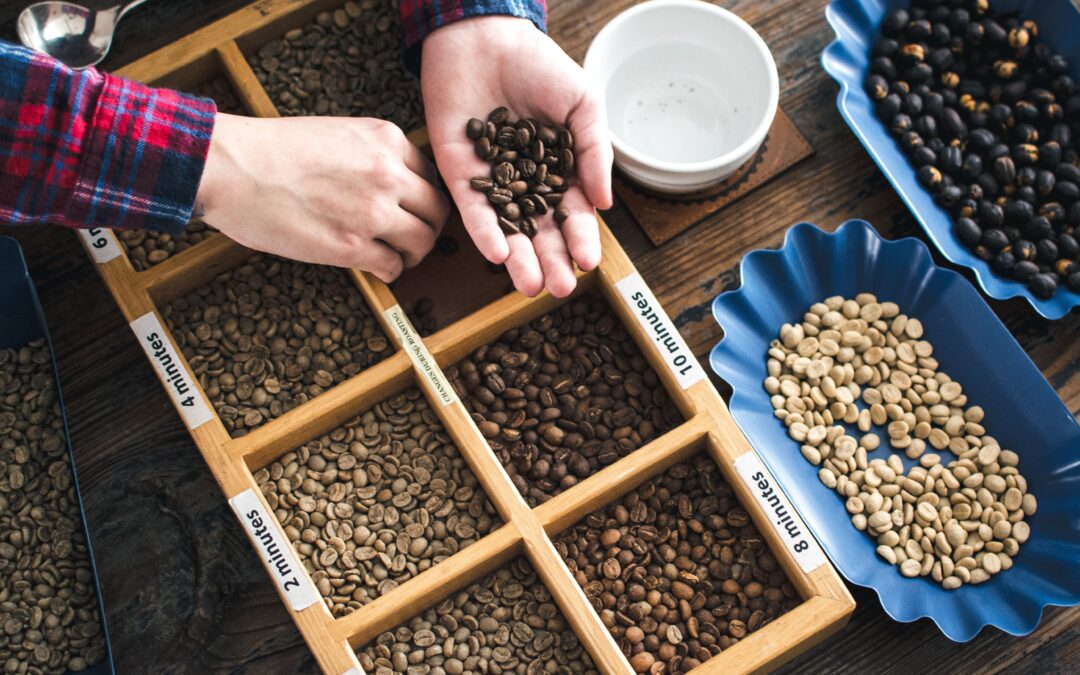Over the next decade, the organic coffee market is expected to grow by as much as 18% annually, potentially rising in value from $8.9 billion in 2022 to $28.8 billion by 2030. The growth is largely driven by consumers who are increasingly seeking out products that are:
- Healthier
- Ethically and sustainably produced
- Higher quality
Mother Parkers Tea & Coffee felt this demand acutely.
“We decided to provide organic coffee products to meet customer demand,” Nusrat Mohammed, Manager of Quality Assurance at Mother Parkers’ Ajax based plant, said.
The decision to produce organic coffee products also aligned with values Mother Parkers has held since their founding as a wholesale grocer in 1912. Today, Mother Parkers offers a range of organic coffee products which they prepare at their Mississauga, Ontario roasting and packaging facility. The products embody their commitment to sustainability and emphasize:
- Environmental Stewardship
- Ethical Sourcing
- Use of recycled/recyclable packaging
“We’re committed to selling sustainable products that are good for the environment as well as consumers,” Mohammed said.
Mother Parkers’ values paired with their customers’ interest in organic products made obtaining organic certification a logical step. The process did come with challenges, however. For Mother Parkers, which markets their products in Canada and the US, understanding equivalency agreements between the countries presented challenges.
“Understanding what’s acceptable vs not [acceptable] with different countries is often challenging,” Mohammed said, noting that small differences in requirements can have large consequences. “Understanding equivalency agreements between countries and documentation requirements is essential for transitioning operators. You want to ensure you only source raw material from suppliers who are certified.”
Choosing a certification partner that understood these different regulations became a top priority.
“OCIA is a well-known and reputable organization,” Mohammed said. “Being an industry leader, Mother Parkers wanted to work with a partner who would provide excellent service and meet our needs. We also wanted someone who provide[s] regulator guidance. OCIA has delivered time and time again.”
Every operator’s path to organic certification is different. Learn more about about the different paths to organic certification in our “Operator Spotlight” series.
- Allan Kettle: In the mid-1990s, Allan Kettle decided to organically certify his Alberta farm. For Allan, the decision to pursue organic certification was easy. Allan’s father, who operated the farm before him, had never used synthetic fertilizers or sprays. Allan continued those practices when he took over the farm.
- Variety Coffee: Variety Coffee has a simple mission: provide customers with the freshest, highest quality coffee possible. The Brooklyn based coffee roster and chain of cafes does this by sourcing coffee beans from around the world, focusing on acquiring beans that reflect growing seasons of different coffee producing regions.
- Jack Geiger: The farm crisis of the 1980s forced Jack Geiger’s family to consider farming methods that required fewer and less expensive inputs. They naturally turned to organics.
Learn more about organic agriculture, certification, and OCIA International.
- Should you transition to Organic?: The decision to transition a conventional operation to organic is deeply personal. Organic certification requires resources, like time and money, and perseverance in the face of the challenges that you will inevitably encounter along the way. Is transitioning to organic the right step for your operation?
- Organic Certification Process:All operators seeking initial organic certification must complete a similar six step process regardless of which certification agency they partner with. The certification process can feel intimidating at first, but knowing what to expect can help alleviate much of the stress you might initially feel.
- Organic System Plan: Every operator must submit an organic system plan. But what is included? And how will the plan provided YOU with benefits beyond certification?
- Healthy Soil: Cultivating healthy soil requires establishing ecological balance and increasing biological diversity. But how can you establish healthy soil on your farm?
- Why Certify with OCIA?: Choosing an organic certification agency is one of the most important points in an operator’s certification process. Let us tell you why OCIA is the right choice for you.

